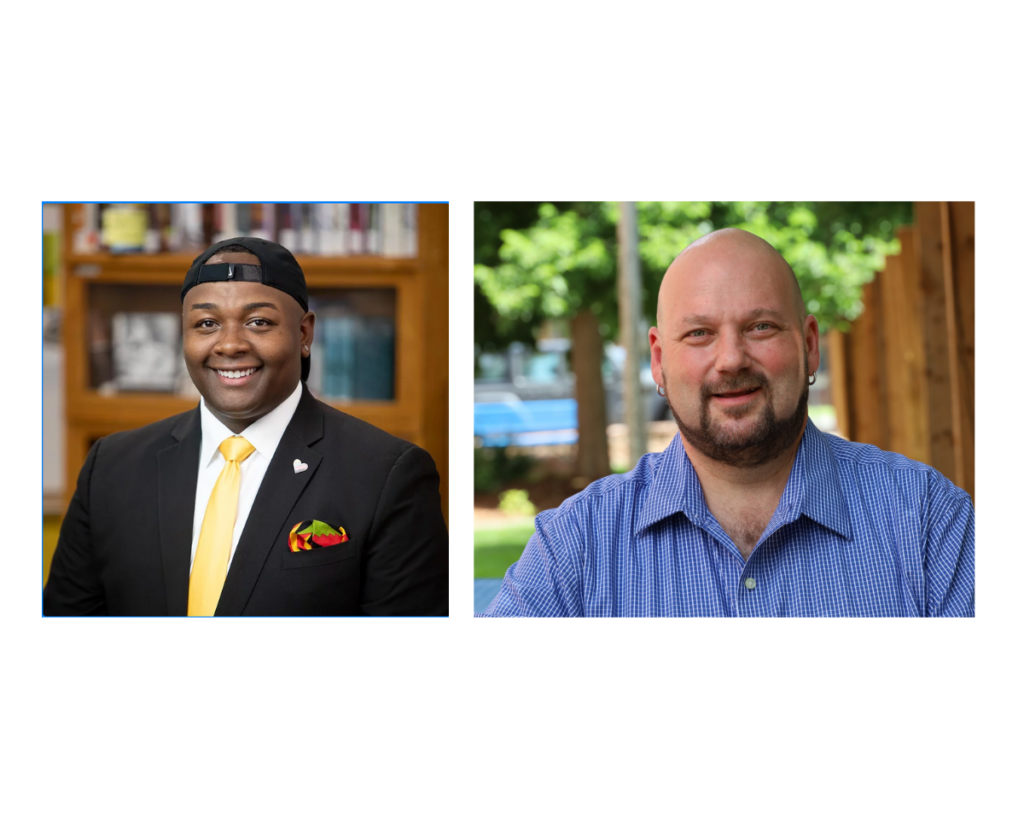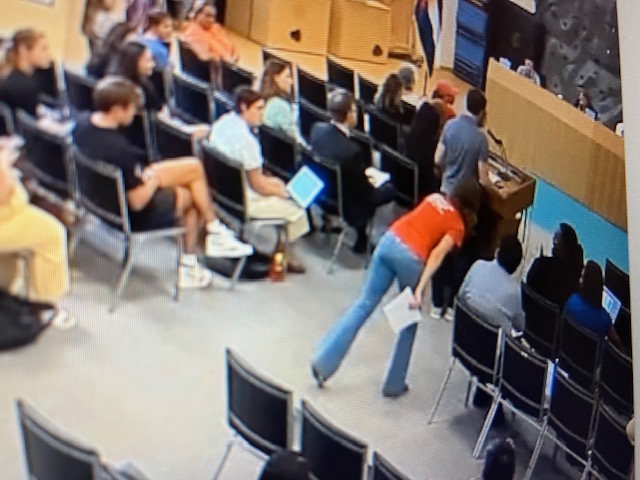Update: This story has been updated with quotes from Scott Esserman’s campaign manager.
Correction: An earlier version of this story inaccurately characterized the duration of Tay Anderson’s presence at a video interview of Esserman. That paragraph has been removed from the story.
A consulting business set up by Denver school board member Tay Anderson in mid-August has been paid $5,000 over the past two months from the campaign of at-large school board candidate Scott Esserman, records show.
The payments are for “consultant and professional services.” Neither Anderson nor Esserman have publicly acknowledged the relationship.
Anderson is the sole principal and the registrant for Good Trouble Consulting, which has received five separate $1,000 payments from Esserman for Denver Kids. Anderson registered his business on August 18, 2021, and Esserman’s campaign sent the first payment on August 15. The campaign subsequently sent Good Trouble $1,000 checks on Sept. 1, Sept. 13, Sept. 29, and Oct. 12.
Carrie Olson, the DPS board president, said Friday she had not heard about the financial relationship between Anderson and Esserman.
Anderson did not respond to repeated requests for comment.
Esserman declined to comment, other than to say, by text message that “this is a ludicrous political attack that is trying to make a normal, above-board transaction look shady.”
UPDATE: Later Friday, Hashim Coates, Esserman’s campaign manager said in an interview that the campaign had legitimate reasons to hire Anderson: His website expertise. “School board director’ is independent of Tay’s relationship to this campaign,” Coates said. “Good Trouble Consulting provides a service that the campaign pays for, completely independent of director, board work, and anything else … We looked for people to maintain our website, we found someone that had the skillset, and therefore there was a business opportunity there.”
Whether there is any ethical problem with the arrangement depends on its details, said Don Mayer, a professor of business ethics and legal studies at the University of Denver’s Daniels College of Business. That’s why it is incumbent upon Esserman and Anderson to be upfront about their contractual relationship, Mayer said. Boardhawk asked Mayer about the situation without telling him the candidate or incumbent’s names.
“If it was just a friendship — ‘I’m doing this because I like you, I’m not getting paid by you I just want to help you –‘ that would be one thing,” Mayer said. “But what makes this a potential conflict of interest is we don’t know what the deal is.”
Clearly, Mayer added, “the public is entitled to know of the relationship, and the details of that relationship. If (Esserman) is saying…he will represent all the people and do his best to be a city-wide representative to the board, does this contract which we don’t know the details of, in any way compromise his ability to do what he says he’s going to do and keep his promises to the public?”
Having failed to proactively disclose the relationship could make it appear unseemly even if it isn’t, Mayer said. “If you ask people in Denver ‘would you want to know if existing board candidates are being paid for their advice to the candidates?’ I think most people would say yes,” he said.
T. Michael Boddie and Alan Gottlieb contributed to this report. It was written by Gottlieb.




